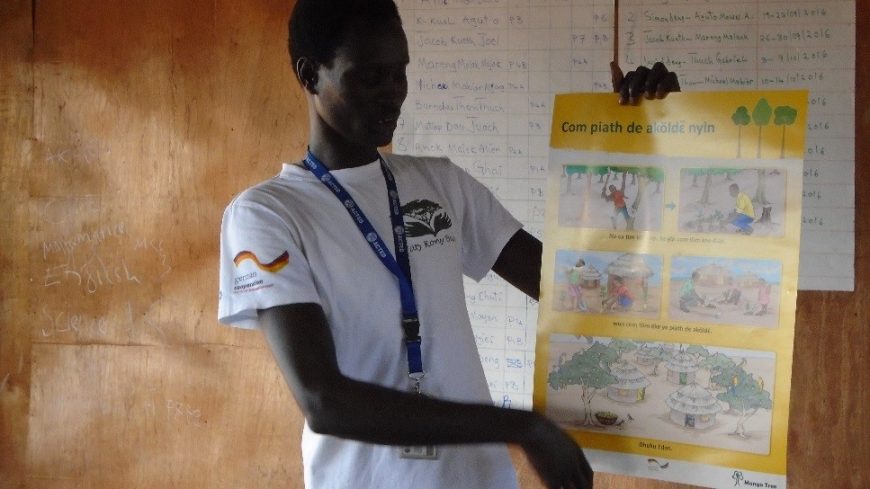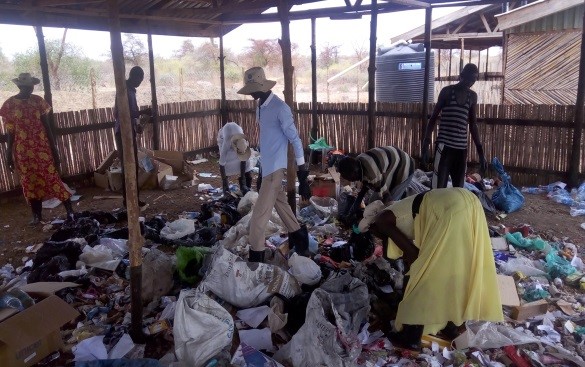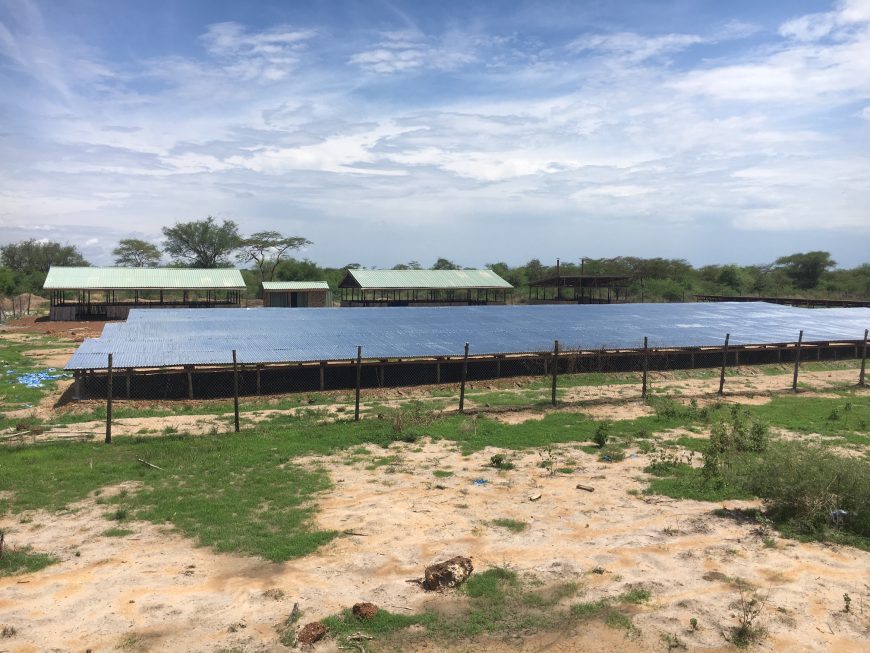
Thanks to the generous contribution of KfW Development Bank, ACTED supported the construction of a comprehensive waste management system in Mingkaman, including the construction of associated infrastructure, as well as capacity building of the local health department.
Since civil war broke out in 2013, Mingkaman has seen the arrival of thousands of displaced people from neighboring Jonglei state, putting pressure on already scarce resources. Access to water and sanitation conditions has become difficult, thereby leading the humanitarian community to focus on preventing the spread of communicable diseases like cholera, while conducting emergency activities such as food and cash and voucher distributions to improve food security of over 114,000 internally displaced persons. ACTED is also providing camp coordination and camp management support in displacement camps through information management, infrastructure maintenance, establishment of governance structures for local leadership.

ACTED has also invested in a comprehensive solid, liquid and medical waste management system, constructed in coordination with the community and local government, with the aim to empower local county departments to improve living conditions for both internally displaced persons and host communities. Three waste management sites (each equipped with incinerators) have been constructed for solid, liquid and medical waste management. The medical waste site is used by the local county public health clinic, while the liquid and solid waste sites are built at the outskirts of the Mingkaman settlement. For sustainability, health promoters were extensively trained on waste management, from collection to separation and dumping. With the support of a tractor and trailer procured for the Mingkaman county health department, waste management activities are conducted on a regular basis following successful handover of the project and assets.
The infrastructural component of the intervention has been accompanied with several initiatives aimed at increasing awareness and capacity among local communities regarding environmental and waste management aspects. In particular, several environmental awareness campaigns were conducted, through radio programmes and by supporting cleaning days in the main used spots of the area, such as the local market. Moreover, local market committees were targeted with several awareness raising and capacity building sessions regarding environmental and waste management topics. The team also developed and shared standard operating procedures for waste management system and cost and recovery plan to guide operation and maintenance aspects of the infrastructures. Formulated in cooperation with relevant local stakeholders, these documents aim at providing them with technical, financial and management instructions for the future sustainability of the sites, such as modalities of safe garbage collection and disposal, fees to be collected to ensure operational and management costs are covered, potential future scenarios and use of revenues collected for future needs.
Despite numerous obstacles given the operational context, the activities have been successfully implemented as to progressively increase local capacities while expanding the infrastructural set-up, with the overall objective of improving waste management and sanitation conditions in the area.
